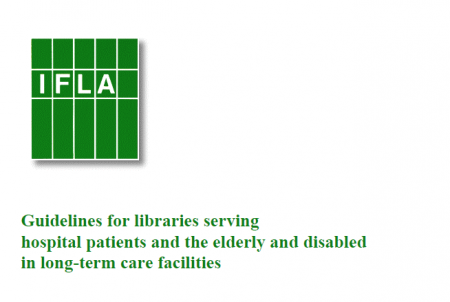IFLA Guidelines for libraries serving hospital patients and the elderly and disabled in long-term care facilities

“During the course of its preliminary research, the working group was struck with how the concept of a hospital library differs so in different parts of the world. It found, for example, that in some countries, the term 'hospital library' almost always signified a biomedical/health sciences library, while in others, it usuallymeant a library providing leisure reading materials for patients. In still other countries, 'hospital library' could signifyeither a biomedical/health sciences library or a patients' library, with the latter providing leisure reading collections or health information materials or both. Recognizing the ambiguity of the term, therefore, these guidelines have tried to avoid its use. It was not possible to do so in some instances, for example, in recounting the history of patients' libraries. The reader should thus be aware that where the term 'hospital library' is used, it means a library for patients, one that routinely provides leisure reading collections, often in combination with health information materials.
Rationale
Prior to developing these guidelines, the working group discussed at length what it thought would be universal changesin the traditional character of patients' libraries and the corresponding problems of trying to identify and capture those in a new publication. A prime concern was how near-global trends in the healthcare field - for example, attempts at shorter lengths of hospital stays and fiscally constrained hospital environments - might have affected these libraries and how (and whether) the libraries had been able to adjust. Subsequent to its field research, though, the working group realized that, while the climate of patients' libraries - the user bases, resources, restrictions, and opportunities - was in many cases changing, the missions were remaining fixed, that is, in support of patient care, the libraries were continuing to try to provide as wide a range of library materials as possible.
With that in mind, the working group proceeded with this publication. In so doing, it recognized that, beyond providing direction, current guidelines would also function as a document descriptive of the field and supportive of field practitioners. As such, the group believed that they would ultimately prove useful, not only to those already providing library services to hospital patients, the elderly, and the disabled, but also to those who were seeking to initiate, justify, or expand such services.”
